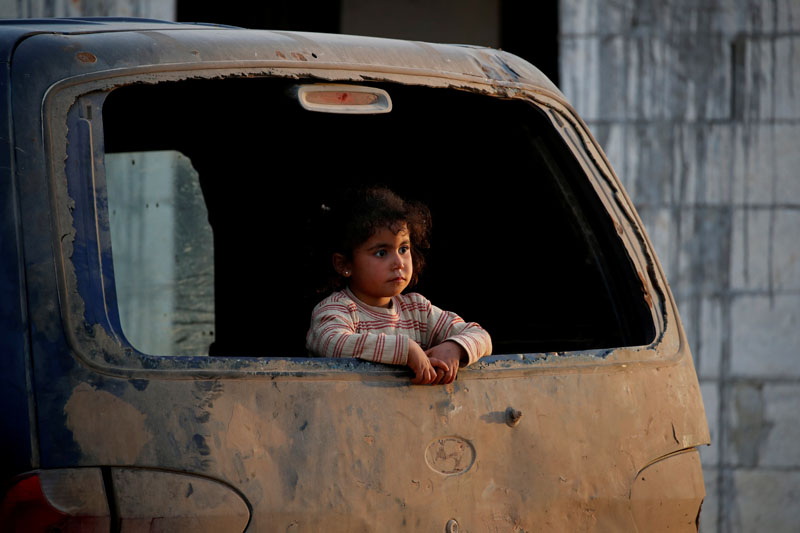Shattered by years of war, Syria braces for coronavirus spread
BEIRUT: The spread of coronavirus to Syria brings the prospect of a deadly outbreak to a population devastated by nine years of war, with ravaged hospitals and tightly-packed camps likely to accelerate infection, doctors and aid workers said on Monday.
The Syrian government announced on Sunday its first case after unconfirmed reports suggested the virus had been detected but covered up, a charge officials denied while rolling out tight measures as the disease swarmed neighboring countries.
In the rebel-held northwest, no cases have been confirmed, but patients have been showing possible symptoms for weeks and 300 test kits should arrive in the next two days, the World Health Organization and a medics group said.
“Health infrastructure and basic services have all been decimated over much of the country ... and Syrians are very likely to be some of the most vulnerable to the spread of the virus globally,” said Rachel Sider, policy and advocacy adviser for the Norwegian Refugee Council.
“What’s very clear is they’re nowhere near ready for an outbreak,” said Sider.
In Damascus on Monday, crowds of pedestrians, many in masks, still filled some streets, despite curbs like shutting schools and businesses, banning public transport and suspending flights.
The army command declared on Saturday it had prepped military hospitals and gave orders to minimize gatherings.
Samer Khodr, head of Damascus hospital, said all private and public hospitals across the country were ready under a national plan to tackle the virus.
Residents say prices of disinfectants and masks have skyrocketed in the capital, where panic buying has also gripped shoppers in recent days.
The head of a local Damascus-based NGO said there was limited capacity to determine cases, with only one main lab testing for the virus so far. Some cases were being treated in military hospitals, the person added, asking to remain anonymous.
Despite just a single case declared, one diplomat said the virus was likely more widespread than known, owing to low testing capacity and lack of transparency.
The Syrian Observatory, a Britain-based war monitor, said doctors had received threats from the government not to disclose cases. “Doctors have been instructed to refer to cases that are suspected to be corona infections as severe pneumonia,” said its director Rami Abdulrahman.
A U.N. source said three Syrians who tested positive at the weekend in Beirut, which is trying to contain a coronavirus outbreak, had recently arrived from Syria.
The government has denied covering up any cases, though close ties with its top regional ally Iran, the worst hit country in the Middle East, had increased the likelihood of the virus gaining a foothold.
Militias backed by Iran, which operates military and civilian flights to Syria, fight alongside Syrian army soldiers. Thousands of Shi’ite pilgrims from Iran and other countries also usually visit Damascus.
In parts of Syria outside state rule, Kurdish-led forces in the northeast and Turkey-backed opposition groups in the northwest have also closed crossings.
Displaced Syrians in the northwest live in overcrowded makeshift camps, leaving medics worried that an outbreak would be particularly lethal.
A Russian-backed Syrian government offensive there has uprooted nearly 1 million people in recent months and left its infrastructure in tatters.
Ahmad al-Dbis of the U.S.-based medical charity UOSSM, which operates in opposition territory, said fighting in the past year had destroyed much of the region’s medical facilities and left a stock of only 175 ventilators.
“Countries like Italy, France, Spain and others couldn’t escape from the coronavirus crisis so what will it be like for northwest Syria?” said Dbis.
The arrival of test kits this week, though limited, will allow doctors to finally begin checking for the virus. A handful tests were shipped to Turkey so far but no cases have come back positive.
“There are many cases coming to facilities and hospitals with the symptoms but we don’t have the capacity to make the diagnosis,” said Bashir Taj Aldin, a doctor with the Syrian American Medical Society which operates in Idlib.






